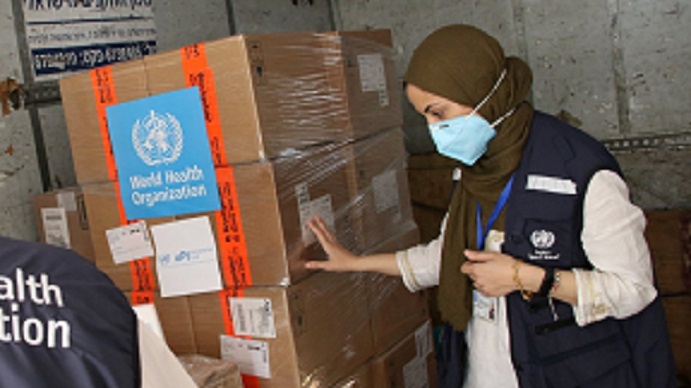UN Office for the Coordination of Humanitarian Assistance (OCHA)
situation overview
As of 2 June, 630 Palestinians in total are confirmed to have contracted COVID-19 in the oPt, with 63 new cases recorded during the reporting period. These include 179 cases in East Jerusalem,[1] a further 390 cases in the remainder of the West Bank, and 61 cases in the Gaza Strip. There are currently 98 active cases, with 527 cases recovered and five deaths reported since the start of the outbreak. The first death in Gaza occurred on 23 May, the first COVID-19 fatality recorded in the oPt since 20 April.
According to the Palestinian Ministry of Health (MoH), since the onset of the crisis, 57,688 laboratory samples have been tested. More than 22,990 Palestinians are in quarantine at home or in designated facilities, in order to monitor their symptoms and ensure the early detection of cases. The cumulative number of Palestinians in quarantine since the onset is 93,916.
The MoH and the humanitarian community continue to address critical gaps in laboratory supplies and other medical equipment, including life-saving ventilators and essential Intensive Care Unit (ICU) equipment.
The State of Emergency across the oPt, originally declared on 5 March, has effectively ended, with banks, government ministries, shops, and public transportation networks reopening, following the announcement of the Palestinian Prime Minister, Mohammed Shtayyeh, on 25 May and the conclusion of the Muslim Eid al Fitr holiday. The Prime Minister attributed the relaxation to negative test results from the random testing carried out on Palestinian workers returning from Israel, and to a sharp decline in COVID-19 cases, generally, across the oPt.
Approximately 78,000 Palestinian students across the oPt started the twelfth grade exams, the Tawjihi, on 30 May.
Despite the requirement to maintain health measures and safety requirements, very limited adherence to regulations, including the usage of face masks, physical distancing and sanitation procedures, is reported in shops, restaurants and public spaces. Since the easing, additional cases have been detected in the West Bank; the World Health Organization (WHO) continues to encourage people to adhere to the recommended measures, including physical distancing and personal hygiene measures.
In its latest report, the World Bank is projecting a decline of at least 7.6 per cent in the economy of the oPt in 2020, “based on a gradual return to normality from the containment, and up to 11 per cent in the case of a slower recovery or further restrictions due to another outbreak.” In either case, the World Bank warns that “the reduction in per capita income and the rise in unemployment and poverty will be substantial.” The West Bank is expected to register a larger deterioration compared to in Gaza, due to a decline in income from Palestinian workers in Israel, and because the majority of the poorest in Gaza already rely on aid.
Read the full report:
https://www.ochaopt.org/content/covid-19-emergency-situation-report-10













